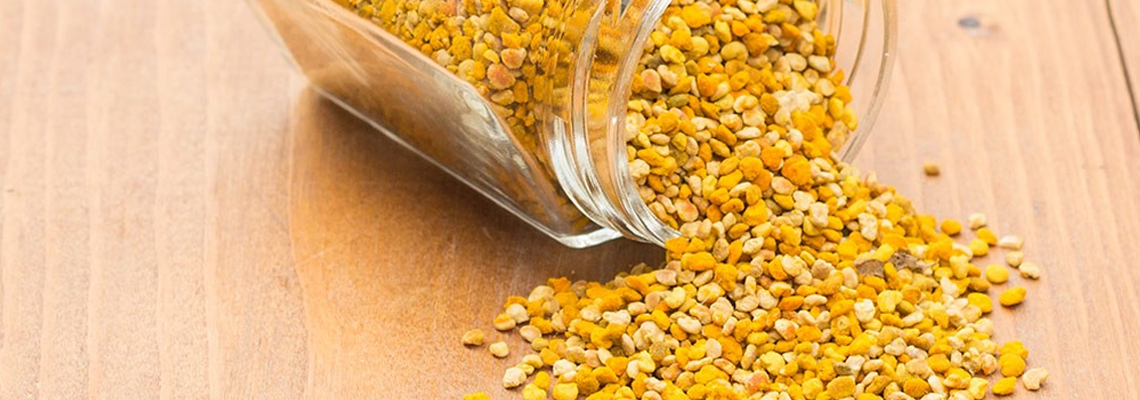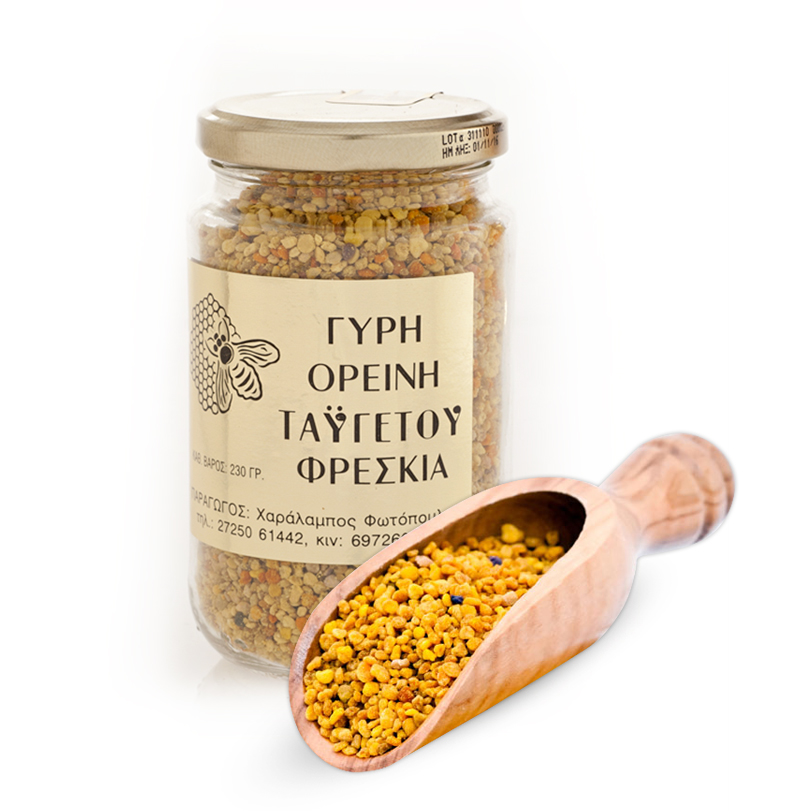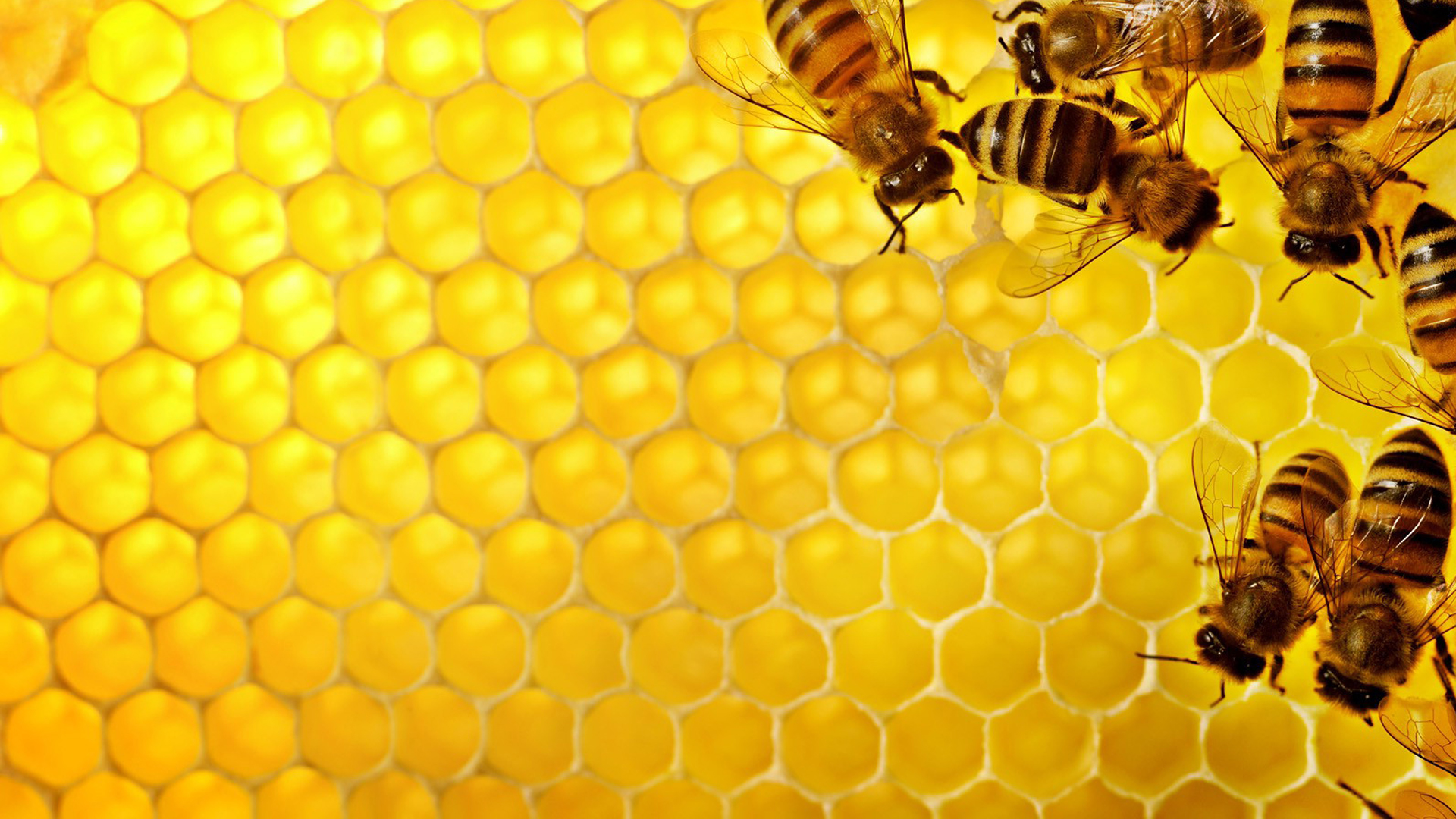
|
Pollen
Taygetou Honey | Fotopoulos Beekeeping, Messinia
|
|
Pollen is a product collected by bees from various flowers.
It is the richest natural food in proteins, vitamins, essential amino acids, hormones, enzymes and other useful ingredients for our diet. The pollen has a high content of rutin known as vitamin R (60 mg/100g of pollen), which increases the resistance of the capillaries, thus protecting the body from cerebral hemorrhages.
 The pollen contains goadotropic hormones, which are the biologically active substances that act directly on the genital glands of both men and women. Spermatogenesis in men and the normal development of follicles in women are significantly determined by the presence of these hormones. The pollen contains goadotropic hormones, which are the biologically active substances that act directly on the genital glands of both men and women. Spermatogenesis in men and the normal development of follicles in women are significantly determined by the presence of these hormones.The pollen helps the mental function, strengthens the contraction of the heart, has a diuretic effect. Pollen improves the appetite for this and is especially recommended for the following cases:
 Weakness and general weakening of the body. Weakness and general weakening of the body. Weight loss Weight loss Intestinal abnormalities. Intestinal abnormalities. Psychosis and neurasthenia Psychosis and neurasthenia Memory loss Memory loss Bad metabolism Bad metabolismPollen improves the condition of people who have mild allergic manifestations and helps them to gradually acquire resistance (immunization). It has a beneficial effect on the prostate and improves the treatment of prostatitis (inflammation of the prostate). Pollen is rich in cystine, an amino acid that positively affects hair growth and hair color. Pollen mitigates and significantly limits the problems of menopause.
Pollen gives well-being, increases self-confidence and improves sexual status. It contains biologically active substances that positively affect water metabolism, control appetite, fat deposition in the body, the functioning of the ovaries and the Gland, and generally promotes good physical condition of the body. The healthiest and longest living people in the world are the inhabitants of the Himalayas, the Caucasus in Russia, and Mount Vicabomba in Ecuador. Most of them use pollen in their daily diet
How much pollen should we eat per day?
 Thirty-five grams of pollen (one tablespoon) a day cover our daily needs in proteins, vitamins and trace elements. Thirty-five grams of pollen (one tablespoon) a day cover our daily needs in proteins, vitamins and trace elements. Pollen consumption should start with a small amount until the stomach gets used to it. A teaspoon daily for about a week and gradually increasing to a tablespoon is suggested. Pollen consumption should start with a small amount until the stomach gets used to it. A teaspoon daily for about a week and gradually increasing to a tablespoon is suggested. Pollen consumption should continue without interruption for 4-6 months depending on the needs and reaction of each individual. Pollen consumption should continue without interruption for 4-6 months depending on the needs and reaction of each individual. The pollen is consumed as is or dissolved. The pollen is consumed as is or dissolved. |
|
|
| Points of Sale |
 Taygetou Honey | Fotopoulos beekeeping Taygetou Honey | Fotopoulos beekeepingHeadquarters: Akritohori Messinias Tel. 2725061442
Warehouses: Ano Liosia / Attica Tel. 2102486925 Mob. 6972600746 |



